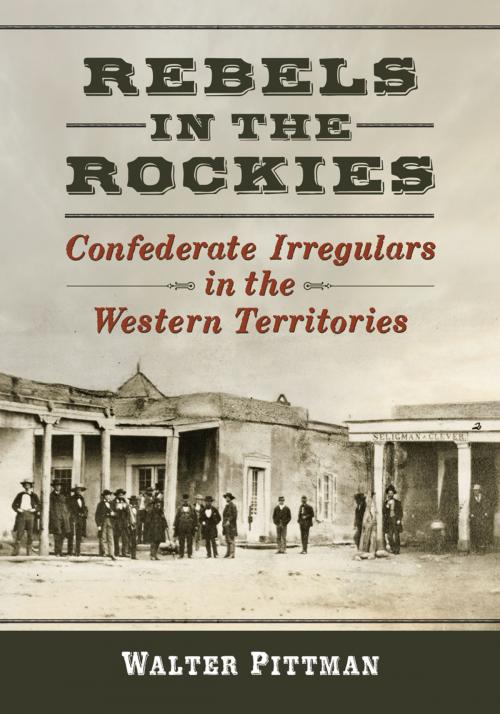Rebels in the Rockies
Confederate Irregulars in the Western Territories
Nonfiction, History, Americas, United States, Civil War Period (1850-1877)| Author: | Walter Earl Pittman | ISBN: | 9781476614380 |
| Publisher: | McFarland & Company, Inc., Publishers | Publication: | July 15, 2014 |
| Imprint: | Language: | English |
| Author: | Walter Earl Pittman |
| ISBN: | 9781476614380 |
| Publisher: | McFarland & Company, Inc., Publishers |
| Publication: | July 15, 2014 |
| Imprint: | |
| Language: | English |
The Civil War in 1861 found Southerners a minority throughout the West. Early efforts to create military forces were quickly suppressed. Many returned to the South to fight while others remained where they were, forming a potentially disloyal population. Underground movements existed throughout the war in Colorado, California, Nevada, New Mexico, Arizona and even Idaho. Repeatedly betrayed and overwhelmed by Union forces and without communications with the South, these groups were ineffective. In southern New Mexico, Southerners, who were the majority, aligned themselves with the Confederacy. Four small companies of irregulars, one Hispanic, fought (effectively) as part of the abortive Confederate invasion force of 1861–2. The most famous of these, the “Brigands,” were close in function to a modern special forces unit. In 1862 the Brigands were sent into Colorado to join up with a secret army of 600–1,000 men massing there, but were betrayed. Returning to Texas, the Brigands and the other irregulars were used for special operations in the West throughout the War; they also fought in the Louisiana-Arkansas campaigns of 1863–4.
The Civil War in 1861 found Southerners a minority throughout the West. Early efforts to create military forces were quickly suppressed. Many returned to the South to fight while others remained where they were, forming a potentially disloyal population. Underground movements existed throughout the war in Colorado, California, Nevada, New Mexico, Arizona and even Idaho. Repeatedly betrayed and overwhelmed by Union forces and without communications with the South, these groups were ineffective. In southern New Mexico, Southerners, who were the majority, aligned themselves with the Confederacy. Four small companies of irregulars, one Hispanic, fought (effectively) as part of the abortive Confederate invasion force of 1861–2. The most famous of these, the “Brigands,” were close in function to a modern special forces unit. In 1862 the Brigands were sent into Colorado to join up with a secret army of 600–1,000 men massing there, but were betrayed. Returning to Texas, the Brigands and the other irregulars were used for special operations in the West throughout the War; they also fought in the Louisiana-Arkansas campaigns of 1863–4.















